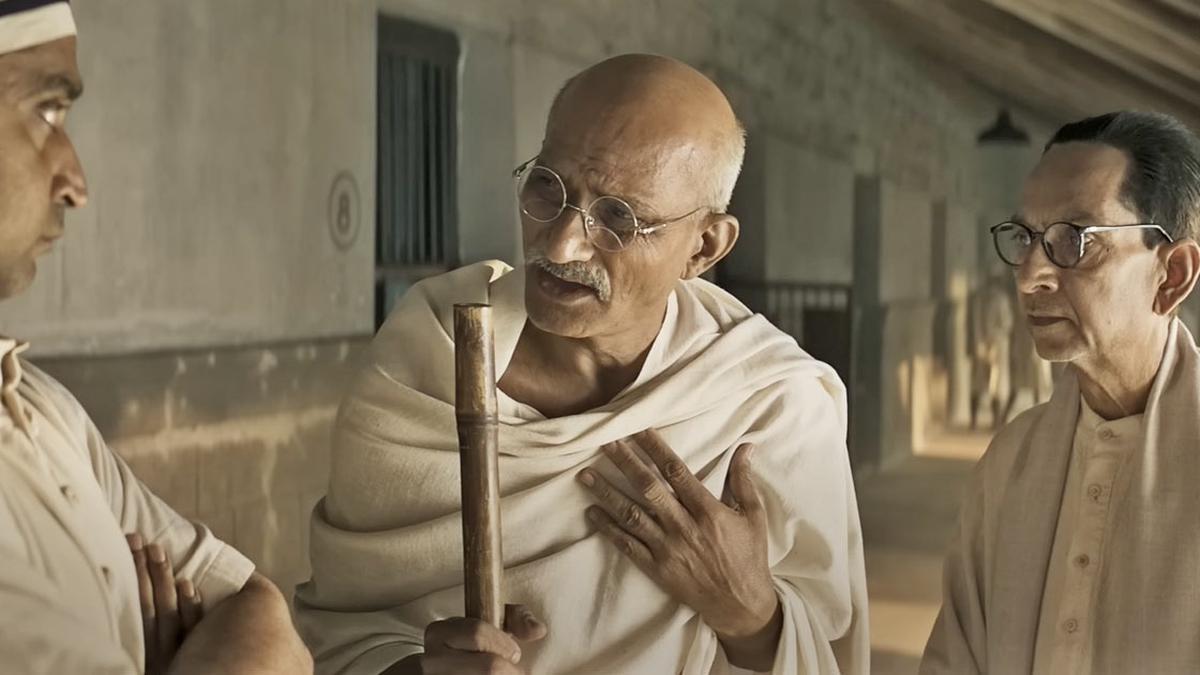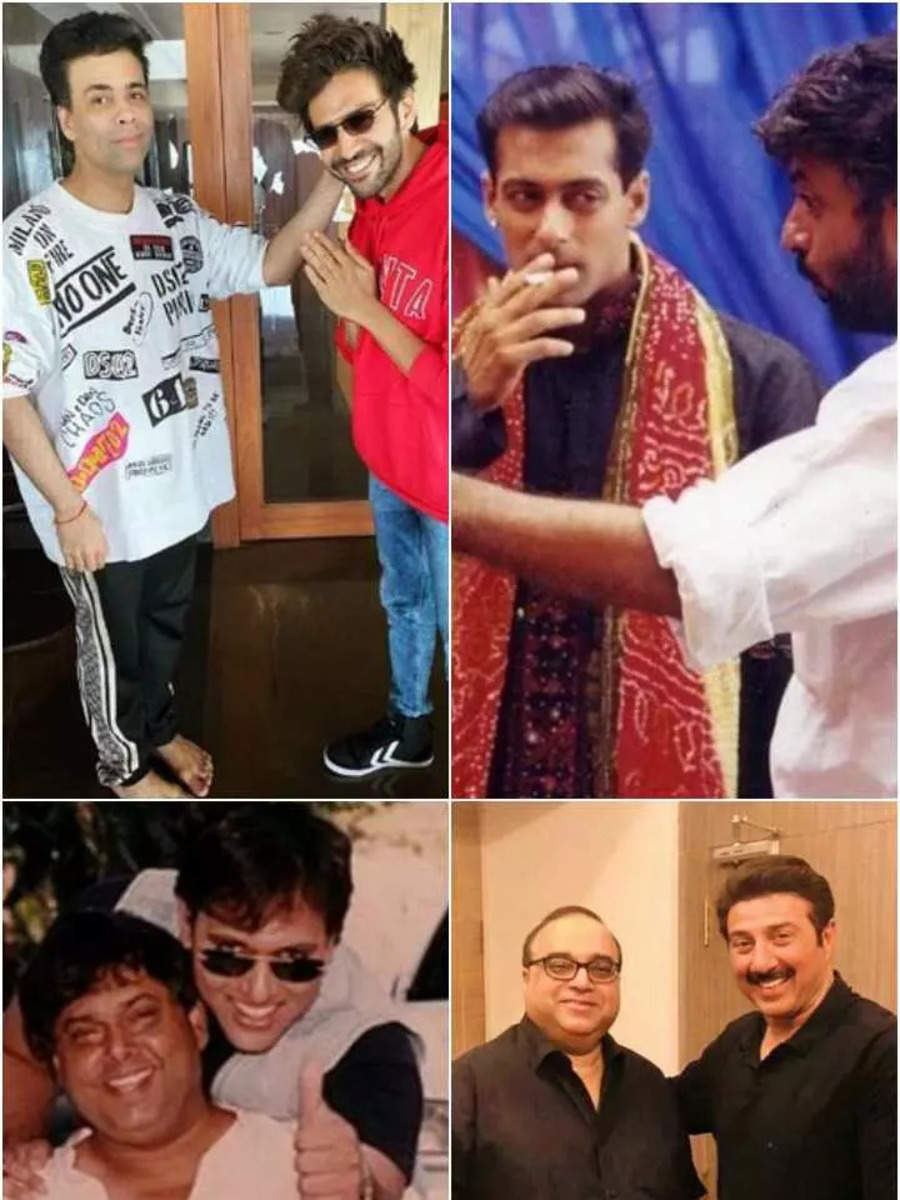- January 26, 2023
‘Gandhi Godse: Ek Yudh’ movie review: A timely dialogue on the idea of India

A still from ‘Gandhi Godse: Ek Yudh’
At a time when history is being fictionalised, director Rajkumar Santoshi uses creative licence to bust the canards that have been allowed to fester over the years to delegitimise Mahatma Gandhi in public conscience. From being called a pawn of the Empire to faking fasts, a notion has been created that Gandhi forced the first government of independent India to release Rs 55 crore to Pakistan.
The film suggests that it triggered Nathuram Godse to kill Gandhi on January 30, 1948. Santoshi revisits the events leading up to Gandhi’s assassination and then takes a leap into an imaginary space where Gandhi survives the three bullets that Godse pumped into his chest and seeks a dialogue with him.
Based on prominent Hindi scholar Asghar Wajahat’s play, one could question the need to provide a platform to Godse and create a false equivalence with Gandhi, but as the film progresses it becomes clear that Gandhi and Godse are just metaphors. The idea is to initiate a dialogue on the idea of India that got diminished at the time of the partition of the country. Instead of brushing the divide under the carpet of euphemisms, it experiments with the bitter truths and seeks to find a middle ground.
When Gandhi tells Godse his ideology has weakened both Hindustan and Hinduism and impaled the idea of inclusivity that defined India for centuries, he answers Godse’s supporters who keep selling the majoritarian fear for vested interests. When charged with appeasement of Muslims, he simply asks Godse to travel across the country to get a sense of the diverse culture he loves to protect. When a prisoner asks Godse whether he threw any stone at the British government before firing at Gandhi, the disciple of Savarkar doesn’t have any answer.
At a time when the Hindutva ideology has seen a spike, Santoshi, who once upon a time brought Bhagat Singh back into national imagination, denies Godse the pleasure of martyrdom and allows him to evolve. At the same time, he attempts to humanise and critique Gandhi in his parallel universe.
Unlike Richard Attenborough, the film probes Gandhi’s personal space and questions his idea of celibacy where physical love is seen as a disorder and how he inflicts psychological violence on those close to him. He also addresses how the Gandhian idea of gram swaraj would have come in the way of government functioning as he could see the poor and the marginalised were yet to be freed. Here is a who man doesn’t allow non-violence to become a cover for lack of courage.
It provides space to figures like Bhimrao Ambedkar who had ideological differences with him and questions Congress leaders on their decision to turn a movement into a political party. But the bottomline is in the battle of ideas; you don’t silence people with bullets. As Gandhi says, you can’t achieve goodness by evil means.
Deepak Antani as Gandhi gets the gait and smile of Gandhi right and manages to provide an insight into the Mahatma’s mind. Chinmay Mandlekar is not bad either but gets theatrical at times. However, the support cast could not display the depth required to convey complex ideas and layered characters. Tanisha Santoshi is impressive as the woman whose devotion to Gandhi comes in the way of her love life. In a stroke of brilliance, Santoshi uses the prayer “Vaishnav Jan To” as a hymn for heartache.
There are portions in the film that lumbers as Santoshi could not get rid of the staginess of the play on screen. The preachy portions and a dated technique make the film inconsistent, but still it is an important film for it seeks middle ground in an increasingly polarised world.
Gandhi Godse: Ek Yudh is currently running in theatres







